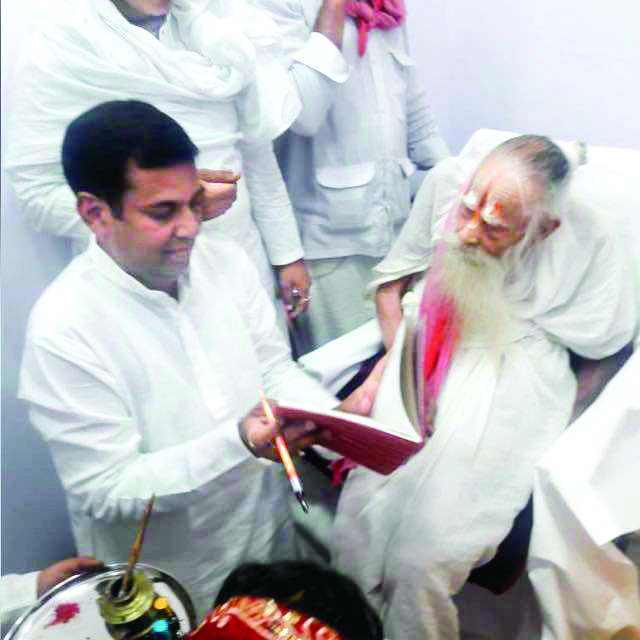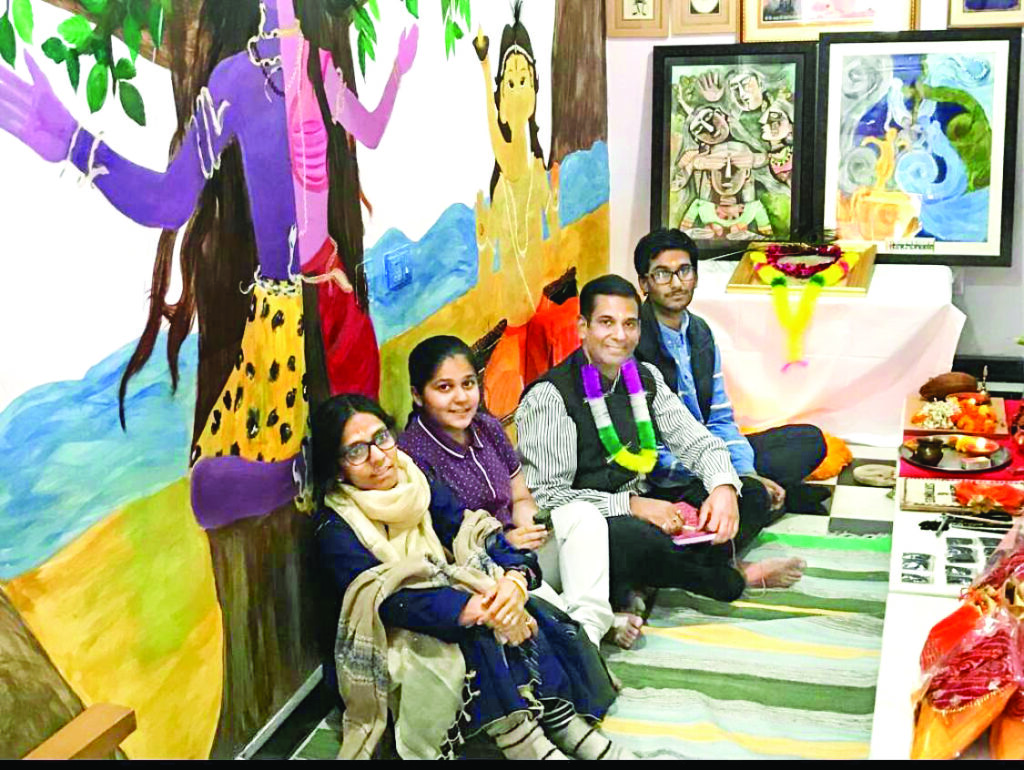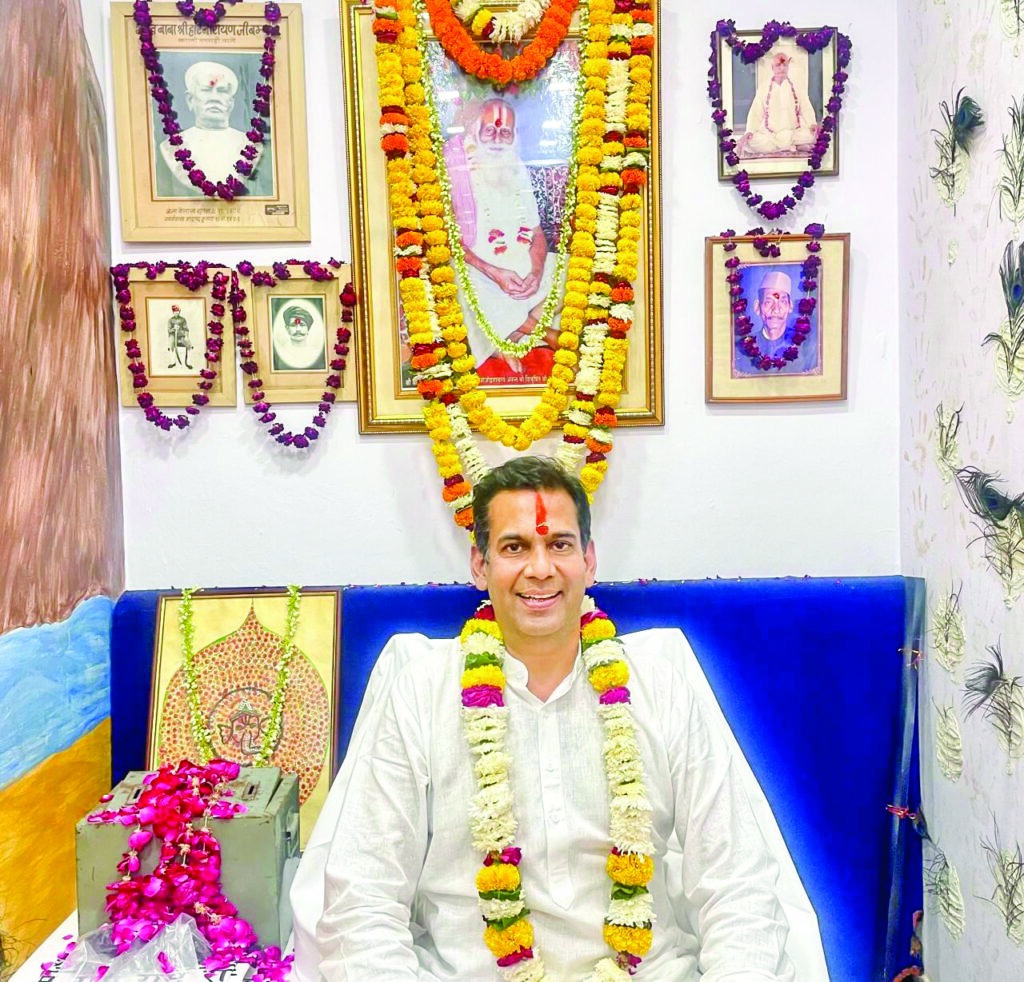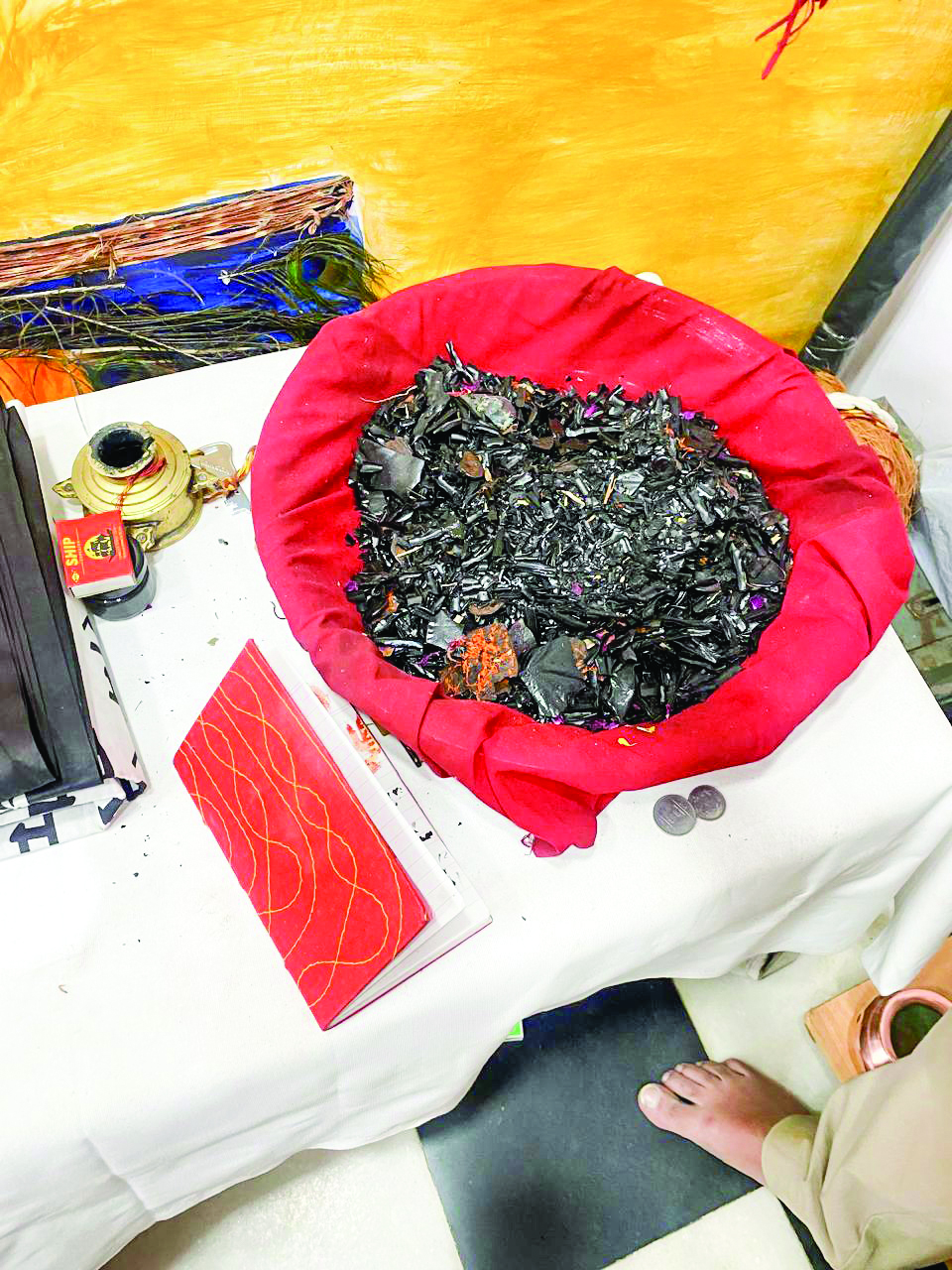Jaipur, often called as the pink city and the capital of Rajasthan, has long been known for its rich heritage, intricate art forms, and cultural traditions. Amid the bustling streets and architectural marvels of the Walled City, one of the most fascinating and enduring traditions is the making of Kali Syahi, or black ink, a craft that has been passed down through generations for over 250 years. This remarkable ink, with its deep historical significance, has not only been used for royal decrees and official documents but also for business accounts, academic certificates, and even in traditional healing practices. The legacy of Kali Syahi, tied to the Vaishya family that has carried this tradition through the ages, is a remarkable testament to Jaipur’s rich cultural heritage and its ability to preserve age-old traditions.
Origins and Historical Significance
Talking about the rich history tradition and significance of this ink the carrier of this tradition, Lokesh Bumb informed that the roots of Kali Syahi in Jaipur trace back to the reign of the Kachhwaha rulers, who invited a family of ink-makers from the nearby town of Sanganer to establish their craft in the city more than 255 years ago. The Kachhwaha rulers were known for their patronage of art, culture, and craftsmanship, and their support for the ink-makers gave rise to a flourishing ink-making tradition in the Walled City. The ink, which was initially produced for royal use, became a crucial part of the state’s official communication. The Kachhwaha kings used it for issuing firmans (royal decrees), while merchants and businessmen in the city employed it to maintain their detailed account ledgers.
The family of ink-makers was given a modest shop in Tripolia Bazaar, one of Jaipur’s iconic markets, where they began producing the now-famous black ink. Over time, this small shop became a symbol of Jaipur’s commitment to preserving traditional crafts. Today, even though the original shop has been divided among family members, it continues to operate under the same descriptive name, Kali Syahi Ki Dukan (the shop of black ink), serving as a link to the past.
As the years passed, Kali Syahi became more than just an ink; it became a symbol of permanence and prosperity. Not only did the ink find its way into official documents, but it also began to be used by universities for awarding degrees to students. The use of Kali Syahi on academic degrees was a way of ensuring the longevity and integrity of these important documents.

The Process of Making Kali Syahi
Lokesh telling about the making of this ink said that it is not just ink making but a family legacy that needs to be preserved. He said that this black ink reminds him of his elders who put in their heart and soul to keep it alive. He said that with change in times and advent of technology everything changes but the roots remain intact. Si it is important to nourish those values which will be helpful for all the future generations. The tradition of making Kali Syahi remains unchanged despite the passage of centuries. Every year, as the auspicious festival of Deepavali (Diwali) approaches, the fourth generation of the Vaishya family, who still manufacture the ink, continues the age-old practice of preparing this indelible black ink. The preparation is done on a no-moon night, a time believed to be particularly auspicious for creating something as enduring as this ink. The process involves careful chanting of mantras, as the family follows a ritualistic approach to making the ink.
The ingredients used in the preparation of Kali Syahi are natural, locally sourced, and often come from ancient recipes passed down through generations. The base of the ink is made from kaajal (homemade mascara), a mixture of soot and other natural substances. The ink also contains gondh (edible gum) and several other herbal ingredients, each contributing to its distinct characteristics. These ingredients are chosen not only for their ability to create a durable ink but also for their medicinal properties.
The ink’s composition is what gives it its remarkable quality—it is indelible and lasts for centuries without fading. Historically, the ink was used for important records, ensuring that documents issued by the royal family and other institutions would withstand the test of time.

Cultural and Medicinal Significance
Lokesh also mentioned that this Kali Syahi has a rich cultural significance beyond its use as an ink. The ink was believed to have protective properties, with many people holding the belief that it could ward off evil and bring prosperity to those who used it. It was said to offer blessings of longevity and success, making it a popular choice not only for royal documents but also for personal and religious use. The belief in its auspicious properties was so strong that it became part of various traditional practices, even extending to the treatment of health conditions.
Kali Syahi was made from natural ingredients like gallnuts (rich in tannins), iron salts, and plant extracts, which were combined with other elements to give it a deep, durable black color. The ink was used in the creation of important documents, art, and even in Rajasthani miniature paintings.
Some of the ingredients used in Kali Syahi, particularly in its early formulations, were also found in the traditional Ayurvedic system of medicine. In fact, the ink’s components were used by Vaidyas (traditional healers) and Hakims (practitioners of traditional medicine) in Jaipur to treat skin disorders such as eczema and other wounds. The medicinal qualities of the ink were highly valued, and the ink itself was often seen as a cure-all for various ailments.
This dual-purpose of Kali Syahi—as both a traditional ink and a medicinal substance—further cemented its place in the cultural and social fabric of Jaipur. For many, it was not just an ink to sign documents, but a powerful tool with a tangible connection to well-being and spiritual health.

A Family Tradition That Lives On
The continued manufacture of Kali Syahi in Jaipur is a testament to the resilience of this tradition and the family that has preserved it. Despite the rise of modern technologies and synthetic inks, the demand for Kali Syahi continues to persist. The fourth-generation members of the Vaishya family still come together during Deepavali to prepare and sell the ink, maintaining the rhythm of their ancestors’ work. This family continues to produce Kali Syahi in the same way it was done centuries ago, keeping alive a vital part of Jaipur’s cultural legacy.
In addition to local demand, Kali Syahi is now being sought after by collectors, historians, and artists worldwide, who value its authenticity and the craftsmanship involved in its creation. Many buyers appreciate the historical and cultural value of this ink, recognizing it as a unique representation of India’s traditional arts.
The Role of Kali Syahi in Modern Jaipur
While the ink is still used by businesses, universities, and traditional healers, it also continues to have a place in the city’s educational system. Even after India’s Independence, many universities in Rajasthan and beyond used Kali Syahi to award degrees. Its indelible nature made it the perfect medium for certificates and degrees, ensuring their authenticity and permanence.
In today’s Jaipur, Kali Syahi is more than just a product; it is a cultural symbol. It represents the endurance of tradition in a world where many age-old practices have been replaced by modernity. It speaks to the city’s ability to preserve its rich cultural heritage while adapting to contemporary needs.
The legacy of Kali Syahi in Jaipur is a beautiful example of how traditions can survive and thrive across centuries. This ink, which once wrote royal firmans and business accounts, has transcended its original purpose to become a symbol of Jaipur’s cultural continuity.
Through the dedicated work of the Vaishya family, who continue to manufacture and sell Kali Syahi with the same care and ritual as their ancestors, the tradition lives on. As long as the ink remains indelible, so too will the legacy of the family and their contribution to Jaipur’s rich history.























